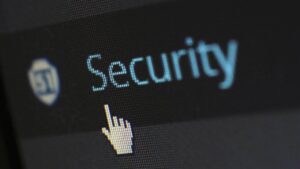We live in an era where you are the product. Whether you’re browsing social media, shopping online, or using a free app, your personal data is constantly being collected, analyzed, and sold.
That’s why protecting your online privacy is no longer optional — it’s a critical necessity.
Content
What Is Digital Surveillance and Why Should You Care?
Digital surveillance refers to the monitoring, tracking, and analysis of individuals’ online behavior.
Corporations, governments, and even cybercriminals are constantly observing your activity, collecting your data, and building detailed digital profiles.
🔍 Common forms of surveillance include:
-
Trackers embedded in websites and ads
-
Mobile apps accessing your contacts and location
-
Facial recognition cameras in public spaces
-
Massive data collection by social media platforms
Warning: These data points are often used to manipulate your purchases, behavior, and even political opinions — all without your consent.
Best Practices to Protect Your Personal Data
Here are practical and effective actions you can take to reduce your digital footprint and increase your privacy:
1. Use Privacy-Focused Browsers and Search Engines
Swap Google for:
Recommended browsers:
-
Firefox (with privacy extensions like uBlock Origin, Privacy Badger, etc.)
🔐 These tools block trackers and significantly reduce data collection by default.
2. Enable Two-Factor Authentication (2FA)
Set up 2FA on all major accounts — email, social media, banking, cloud storage, etc.
Trusted apps:
📌 Avoid SMS verification whenever possible, as it’s vulnerable to SIM-swapping attacks.
3. Use Email Aliases or Disposable Email Addresses
Don’t give your primary email to every site or app.
Use services like:
📫 This helps prevent spam and keeps your real email private.
4. Use a Trusted VPN
A VPN hides your real IP and encrypts your internet traffic, making it harder for anyone to track you.
Top VPNs that don’t log your data:
❗ Avoid free VPNs — most of them log your data or inject ads.
5. Audit and Revoke Unnecessary App Permissions
Go into your Android or iPhone settings and check app permissions:
-
Location
-
Camera
-
Microphone
-
Contacts
📌 Many apps collect this data without real need — even when you’re not using them.

Bonus Tip: Use Privacy-Respecting Operating Systems
For those who want advanced privacy protection:
Final Thoughts: Your Privacy Is in Your Hands
Digital surveillance is real, but you can take control of your exposure. Start small:
✔️ Switch to a privacy-first browser
✔️ Use email aliases for online signups
✔️ Install a reliable VPN
✔️ Manage your app permissions
Privacy isn’t paranoia — it’s protection.




